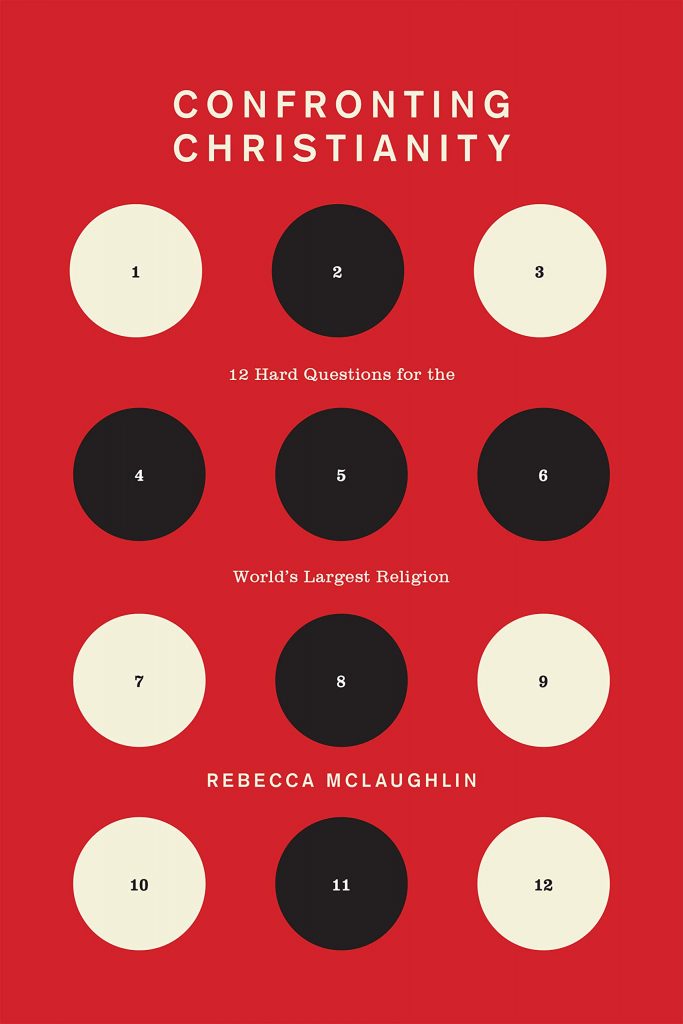
by Brian Hobbs | Oct 16, 2019
According to a news announcement from
the city where I reside, people can now send an emergency text to 911. No
longer do you have to call 911, you can simply notify them by text.
No more calling to hear a live voice
say, “Hello 911, what is your emergency?” Simply text the location and nature
of the situation to 911, and help will be on the way.
Some days, when troubles or
emergencies come, I forget that I can “dial direct” to another source of
ever-present help: God Himself.
During life’s trials, we are quick to
look elsewhere for help. We sometimes look to other people, friends included,
for help (which can be very good and something God wants us to do). Other
times, we turn to less helpful resources, like self-help books or Google, to
look for solutions.
In her classic Christian work telling
her life story, “The Hiding Place,” Nazi concentration camp survivor Corrie Ten
Boom, recounts a time when she turned to a person to help instead of the Lord. Facing
one of the many instances of injustices that she did, Corrie pleaded her case
to a Nazi, only to be turned away cold.
After the encounter, Ten Boom was
reminded that it is to God she could turn for real help, not man. This is the
same spiritual giant who said, “If you look at the world, you’ll be distressed. If you
look within, you’ll be depressed. But if you look at Christ, you’ll be at
rest.”
Today, when problems arise, call on Jesus through prayer. From God’s Word,
we are promised that He will answer. And He may answer your emergency message
even more immediately—and for sure more thoroughly—than 911 ever could.

by Caleb Moore | Oct 10, 2019
I often get approached by an excited parishioner who has questions
about a verse they read. They tell me the book, chapter and verse, but not what
it actually says. I’m not sure if they think I have it all memorized, or
perhaps it’s such a common verse that they assume I know it by heart.
Unfortunately, it’s very rare that I know that verse by its
location, yet as soon as they begin to quote it, I have no problem remembering
what it says.
That’s because I’m terrible at memorizing Scripture. I’m not sure if a pastor
is allowed to say that, but it’s the truth.
This doesn’t mean I don’t know my Bible. I consider myself to
be well educated on theology. For some reason, my brain just has a hard time
memorizing certain things. I’ve tried to use books that teach you how to
memorize Scripture. I’ve had flash cards I carry with me to help as well, but
all to no avail.
I know I’m not alone in this because I have met lots of people
who say the same thing. Although I don’t have it memorized, I can still quote
large amounts of Scripture from memory.
How can I do that without memorizing it? Easy, I just
remember it. Lots of us know things by heart that we never intentionally sat
down to memorize. I can sing the entire theme to the Duck Tales cartoon series.
I also know all the words to certain songs. Most of you reading this can at
least get halfway through the Fresh Prince of Bel Air theme song.
I highly doubt you sat down with song lyrics, made flash
cards and then worked for weeks to remember them all. It’s much more likely
that you heard that song so many times that it just got stuck in your brain,
and no matter what, you can’t get rid of it. This is how I know what I do with
Scripture—not from intentional memorization but from constantly reading certain
sections over and over.
If you find math difficult, it’s likely your brain also has
a hard time sitting down and memorizing flash cards of Bible verses as well. So
my encouragement to you is to not get frustrated but instead sit down and read
the same chapter every day for a week. You may not retain all of it, but you
will know a lot more than you did before. In fact, this is a very biblical way
to do this.
If you haven’t noticed, there are lots of festivals
mentioned in the Old Testament. One of the reasons for this was so that, every
few months, a story about why that festival was created would be retold and
passed onto the next generation.
Someone would read from the Bible, and after hearing it over
and over you quickly knew the Bible in the same way you learned the story of
The Three Little Pigs.
Not all of us learn the same way, but God’s Word is so rich
that we should all strive to find a way to write it on our hearts.

by Brian Hobbs | Oct 2, 2019
Have you had one of those weeks you
felt like you’re on the Titanic while it’s sinking? Day after day, week after
week, your problems seem to persist and magnify.
We have all been there. Everyone—even
followers of Christ—goes through suffering and periods of great difficultly.
What separates Christians from unbelievers, though, is what—or rather Who—we
can call on during times of trouble.
What also distinguishes us is how we view
and respond to our problems. C.S. Lewis, in his masterpiece, “The Problem of
Pain,” said, “God whispers to us in our pleasures,
speaks in our conscience, but shouts in our pain: it is His megaphone to rouse
a deaf world.”
No one wants trials to
come. Indeed, we long for a day in which our difficulties cease and we dwell
with the Lord, unstained by sin, pain and problems. In the meantime, God can
use our present troubles to draw us closer to Him.
History tells us that,
after the Titanic struck the iceberg and began to sink into the ocean, the band
aboard continued to play music for the passengers. According to sources, the
last song played by the musical group, each of whom would perish in the
tragedy, was the hymn “Nearer, my God,
to Thee.”
Consider the dire circumstances aboard
the Titanic—and in your own life—as you ponder these hopeful lyrics:
“Nearer, my God to Thee,
Nearer to Thee.
E’en though it be a cross
That raiseth me,
Still all my song shall be.
Nearer, my God, to Thee,
Nearer, my God, to Thee,
Nearer to Thee.
“Though like
the wanderer,
The sun gone down,
Darkness be over me,
My rest a stone,
Yet in my dreams I’d be
Nearer, my God, to Thee,
Nearer, my God, to Thee,
Nearer to Thee.
“There let my
way appear
Steps unto heaven;
All that Thou sendest me
In mercy given;
Angels to beckon me
Nearer, my God, to Thee,
Nearer, my God, to Thee,
Nearer to Thee.
“Then with my
waking thoughts
Bright with Thy praise,
Out of my stony griefs
Bethel I’ll raise,
So by my woes to be
Nearer, my God, to Thee,
Nearer, my God, to Thee,
Nearer to Thee.
“Or if on
joyful wing,
Cleaving the sky,
Sun, moon, and stars forgot,
Upward I fly,
Still all my song shall be,
Nearer, my God, to Thee,
Nearer, my God, to Thee,
Nearer to Thee.”
Today, if you
are struggling, call out to God (Psalm 86). Ask Him to bring you, as you walk through
your struggles and trials, nearer to Him.

by Amy Spear | Oct 1, 2019
Mark 2:15—“While he was reclining at the table in Levi’s house, many tax collectors and sinners were eating with Jesus and his disciples, for there were many who were following him.”
Arts and crafts are one of my girls’ favorite things to do
at the table! The more glitter, shine, colors, sparkle—man, that is what we are
all about!
They find so much joy being creative, using their God-given
artistic abilities. They learn to work together and encourage each other as
their creation comes to life.
But let me tell you, it makes the biggest mess you have ever
seen! My table has the scars to prove it. Dried on glue, stains from the paint,
glitter stuck between the cracks. UGH! It will never be the same again!
In the grand scheme of things, it is so worth it.
In Mark 2 we see a man named Levi get an invitation from
Jesus to “come follow me.” He immediately gets up, leaves all his possessions
and follows Jesus.
Now this man was a tax collector. The Jews in this time
considered a tax collector to be at the bottom of the social list along with
murderers and thieves. To say the Jews disdained tax collectors would be an
understatement! They wanted nothing to do with them.
I’m sure Levi was well aware of the scars he carried. Like
most tax collectors of his time, he probably stole money from people, cheated
them for his own personal gain and treated people unkind (No wonder the Jewish
people didn’t like him). It would be safe to say he had made a mess of the life
God gave him—having dried glue, stains and glitter in between the cracks of his
life.
But instead of avoiding the tax collectors, Jesus responded
differently. He not only wanted to talk with Levi; He wanted to eat with him.
God’s eternal salvation is for all mankind—not just the
“good” people, the “worthy,” the “churchy” people, but even the lowliest of all.
Jesus came to heal the brokenhearted and hurting, to give them a hope and a
future—something the Pharisees couldn’t understand. Or maybe more accurately,
they didn’t want to understand.
Jesus was going against everything the Pharisees had been
taught and what they themselves were teaching in the synagogues. They
wanted to be in charge; they wanted to teach their way; they wanted
people to listen to them and them alone! Jesus was ruining their
plan!
Jesus reached out to those messy people and told them they,
too, could be worthy of a God who saves. Jesus was an expert in taking the old
and making it new, taking what society said was unworthy and making it worthy
again. In fact, he tells them that is the exact reason he came. “It is not the healthy who need a doctor, but
the sick. I have not come to call the righteous, but the sinner” (Mark 2:17).
When I sit at my stained-covered table, I am reminded how my
life is tarnished with things too. I have made a mess of the beautiful life God
has given me. I have taken His blessings, protection and provisions and wasted
them on selfish things. Living my life with my own intentions instead of His.
But Jesus is in the restoration business!
No matter how many stains or blemishes I may have, He loves
me still! He wants to renew the old and clean up the mess I have made!
Thank goodness I have a Savior who has the power to do all
He has promised!

by Ryan Smith | Sep 30, 2019
Books on
Christian apologetics aren’t casually considered must-reads.
We associate
apologetics with academia, doctrinal debates and something pastors do in
comment sections of blogs.
But still, we
have questions. Our world has questions. Our neighbors, co-workers, family
members, all have questions about Christianity that often go unasked or
assumed. Somewhere between the church doors on Sunday morning and the quiet
solitude of our inner thoughts before sleep, we often think, “Yeah… but what
about…?”
Is it okay to
confront Christianity?
Questioning the
Christian faith is okay – even for Christians. Throughout the Scriptures, we
find even the most devout followers having questions, confronting issues and
having to wrestle with tough circumstances and differing worldviews. Even more
today, in a growing climate of Christian hostility and moralistic relativism,
one may wonder if one can indeed face the head-wind of questions buffeting
Christianity’s doors and still stand firm.
Whether we think
so or not, we live in a day when Christianity is challenged in both public
discourse and private vitriol. While the questions may echo in the minds of
those struggling with faith both inside and outside the church, all too often
these same questions don’t sound from our lips or resonate from our platforms.
This is why the
book Confronting Christianity by
Rebecca McLaughlin is so timely.
McLaughlin is not
your common stereotype of someone who might offer a book on Christian
apologetics. She’s relatively young. She’s not American. Though married with
children, she openly discusses her lifelong battle with same-sex attraction.
She is friends with and respected by a wide assortment of people—from Ivy League
academia to soup-kitchen homelessness—whom she engages in civil and
contemplative discussion.
McLaughlin isn’t
afraid of tough questions, and she has little interest in providing platitudes.
Confronting Christianity addresses
real issues offered from both inside and outside the church. The book proves
helpful for the committed churchgoer as well as the atheistic antagonist to
Christianity.
In fact, through
McLaughlin’s conversational, humble and vulnerable approach to writing, one
could see the Christian and the atheist both enjoying healthy dialogue together
over marked-up copies of this book and steaming cups of tea (not coffee—she’s
British).
Consider the
twelve questions McLaughlin addresses in Confronting
Christianity:
- Aren’t We Better Off Without Religion?
- Doesn’t Christianity Crush Diversity?
- How Can You Say There’s Only One True Faith?
- Doesn’t Religion Hinder Morality?
- Doesn’t Religion Cause Violence?
- How Can You Take the Bible Literally?
- Hasn’t Science Disproved Christianity?
- Doesn’t Christianity Denigrate Women?
- Isn’t Christianity Homophobic?
- Doesn’t the Bible Condone Slavery?
- How Could a Loving God Allow So Much Suffering?
- How Could a Loving God Send People to Hell?
My guess is
either you or someone you know is asking these questions. Even if you are not,
you may know the right answers but find yourself without compelling arguments
as to why you hold your positions.
McLaughlin is
disarming yet firm in her convictions. She is not afraid to chase steep rabbit
trails or shed light on dark corners of Christianity’s history. In all of her
attempts to answer today’s biggest critiques of Christianity, however, her tone
is respectful, understanding and one that is to be emulated.
Confronting Christianity is the book you
didn’t know you were looking for. Even if you’ve never read a book on
Christianity in your life—much less one on Christian apologetics—you will find
this book captivating. You may find answers to your questions. You may find
even more questions you weren’t even asking. Either way, you will find sound
Biblical truth presented with understanding and compassion.
Don’t be afraid
to confront Christianity. I know you will be helped if you do so with this
book.

by Caleb Moore | Sep 18, 2019
Ideas have consequences. We are now reaping the consequence
of certain ideas that have been a part of our society for so long we take them
at face value. Yet when the face of culture changes, these values change, and we
are left scrambling to make sense of how to address these issues.
This topic is one I have written and spoken about many times, but I want to
make one more attempt to show how we can bring healing to those who struggle
with issues regarding their sexual identity. I recently listened to an
interview with a Christian woman who struggles with gender dysphoria. Gender
dysphoria is the clinical name for what most people today know as transgender.
In her talk, she repeatedly commented on the fact that she
never felt like she fit the typical world understanding of what it meant to be
a woman. She would rather play contact sports than shop for clothes or wear
makeup. She was often referred to as a tomboy growing up. This is a problem that the Gospel can really
help.
In Genesis, we are told that God created them male and
female. What it doesn’t say is just as important as what it does say. It
doesn’t say Adam was strong and was created to like football, and Eve spent her
evenings sewing fig leaves for clothes. The reason it doesn’t say anything
about how they behave is because gender is descriptive not prescriptive.
What do those two words mean? Descriptive is just describing their gender and nothing more. If it
was prescriptive then it would be
followed by certain traits that we are designed to adopt. Lots of descriptive
Bible verses are incorrectly used in prescriptive ways. For example, Jer. 29:11
is a very popular verse. It reads, “For I
know the plans I have for you declares the Lord, plans not to harm you but to
give you a hope and a future.”
This is a very nice verse, but it is descriptive. It’s God
promising a certain group of people a certain thing. This thing that God
promises is not applicable to all people at all times. How do I know this? It’s
easy. This verse could not apply to Jesus and his disciples. Jesus and his
disciples both had plans that included them being harmed. Yes, part of God’s
plan for his disciples and himself included their own personal harm. They were
beaten and sometimes killed.
So you can see how troublesome it would be if they tried to take that verse
from Jeremiah and make it about them. Eventually, it would leave them confused
when they faced hard times because it went counter to the promises they claimed
for themselves. In the same way, we need to be aware that gender is descriptive
not prescriptive.
When a transgender woman says she feels like a man on the
inside, what she means is that she doesn’t fit the typical worldly view of
femininity. The pressure that the world put on her to conform is not a biblical
pressure. Very rarely does Scripture suggest that a man or woman should act a
certain way, and when Scripture does, it has to do with how we interact with
each other, not with what kind of personality we should have.
Christians should be sounding the alarm against
sexual stereotypes because we now see just how much harm they cause. They have
drawn lines in the sand and when people don’t fit certain molds we reinforce
those stereotypes instead of showing them that freedom can always be found in
Christ alone.
As the culture flails about like a fish out of water, may we have the attitude
of Christ who looked beyond worldly labels to the heart of each person, and
then offered them a place to find rest for their souls.






